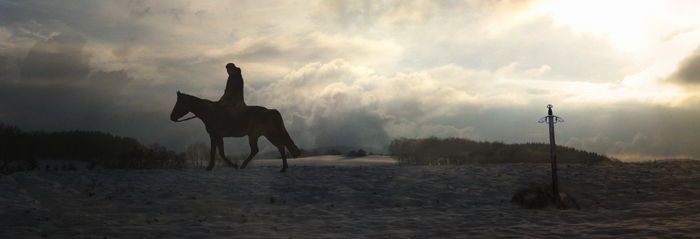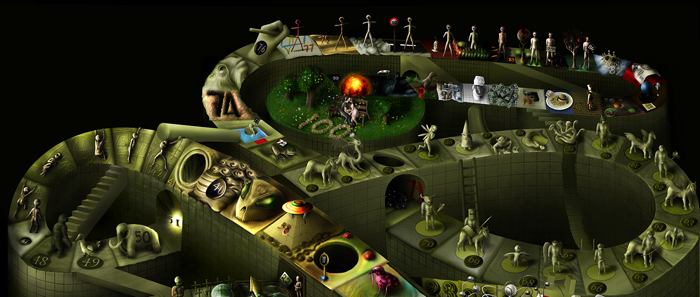28 May Time in Virginia Woolf
Virginia Woolf admitted that life reflected in fiction is not a regularly patterned universe with an objective existence, it is a state of mind.Life is a luminous halo, a semi-transparent envelope surrounding us from the beginning of consciousness to the end.Because existence is not objective, it cannot be absolute. And even time, as thoroughly interwoven into the fiber of being, cannot be absolute itself. This is why all of Virginia Woolf’s novels are, in one way or another, experiments upon the concept of time.
18 May Life of Pi Review (monologue)
This is the first question that popped into my mind after reading "Life of Pi". Tell me, if you were to live on a stranded island for all your remaining years of existence, who would you take with you?17 May The Search for Identity in the novels of Virginia Woolf
The First World War was one crucial event that changed the face of literature forever. A generation of writers became paralyzed by the extreme destruction that war brought about, showing a face of human nature that was never before seen. Gertrude Stein liked to refer to this generation as „the lost generation” because for the first time the vision upon the world was fully shattered and writers could not find anything else to envision but the absurdity of human destiny in the cataclysmic context. The changing times demanded different, new modes of expression. Modern writers, like James Joyce made use of stream of consciousness techniques to crystallize the inner monologue of characters. But these were not simple stylistical devices. Their main role was to convey the irregularities of thought, but this further led to underlining the irregularities of human experience. For the first time, existence is hopeless, idenitity is void and writers themselves sought to discover a new sense of identity, as if the human spirit had once again lost its innocence and had been cast away from the Garden of Eden. Among all the writers, Virginia Woolf is probably the best one to describe this modern interbelic search of identity.08 Apr Video games: ludic qualities versus representational dimension
The academic literature has made a bad habit out of defining video games as a form of cultural discourse that replicates the texts of either literature or cinema. But I think that firstly, video games should be at first studied as such, as games. In this respect, though, games still are a fuzzy concept. Nevertheless, as Buckingham (2006) admits, we can argue that games are defined through play, the framework of which is sketched out through rules. Games, in contrast to other forms of media, “are not self-contained and they involve a different type and level of participation from that of reading a novel or watching a movie”. But, besides this participational aspect of play, it is disputable what other aspects should be encompassed by the term “video game”.
06 Apr Seeing video games as an academic field of study
I got up this morning with the crazy idea of recommending a website to you all. www.gamestudies.org will surely change your view upon the video game industry. This periodical academic journal has engaged in analyzing video games form all cultural points of view. I lately saw someone using a league of legends hack - and they rushed through the game like four times faster than everyone else. Whether you want to find out how multiplayer shooters like Counter-Strike generate new language, compare The Sims to other popular titles (Grannies really ARE cooler than trolls, don't you think?!) or just gain another point of view on one of the most famous games of the 21st century (World of Warcraft), you are surely bound to find out interesting things.09 Sep The Narrative Perspective in “Fanny and Annie” by D.H.Lawrence
The "Fanny and Annie" short story is part of D.H. Lawrence's "England, my England" short story collection. D.H. Lawrence is the first writer in English with a truly international reputation to have come from the working class, and this is reflected in his work both in terms of subject matter and some of his attitudes. Many of his short stories, for instance, deal with elemental conflicts between men and women, but are set amongst ordinary working people. “Fanny and Annie” is no exception from the rule, as it presents the potential marriage between Fanny, a lady’s maid and Harry, a foundry worker, all taking place in a very realistic working class community.- 1
- 2








